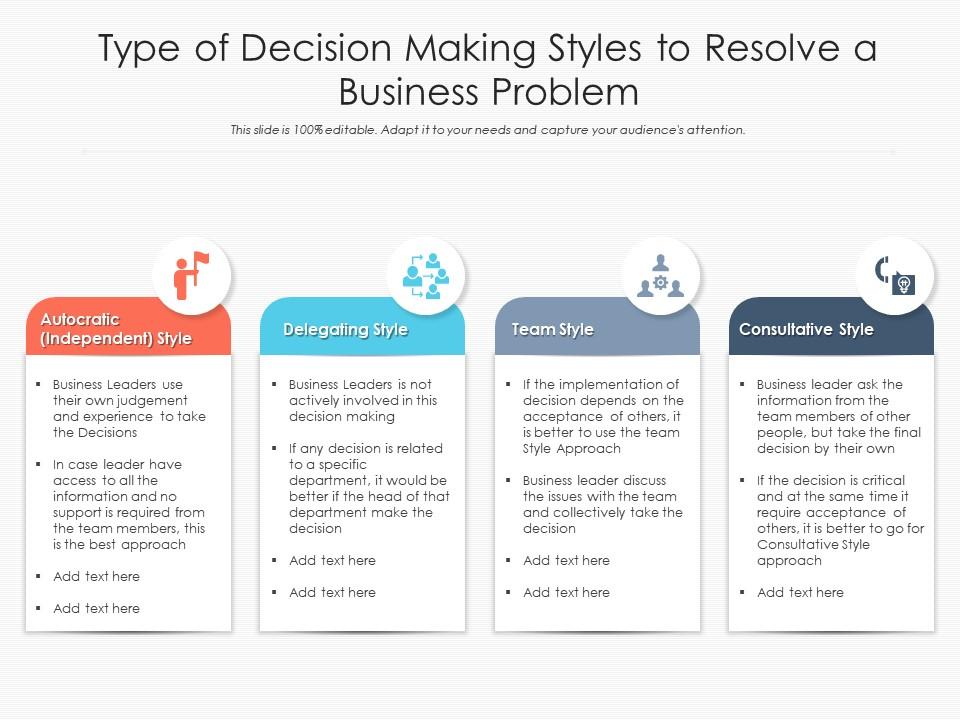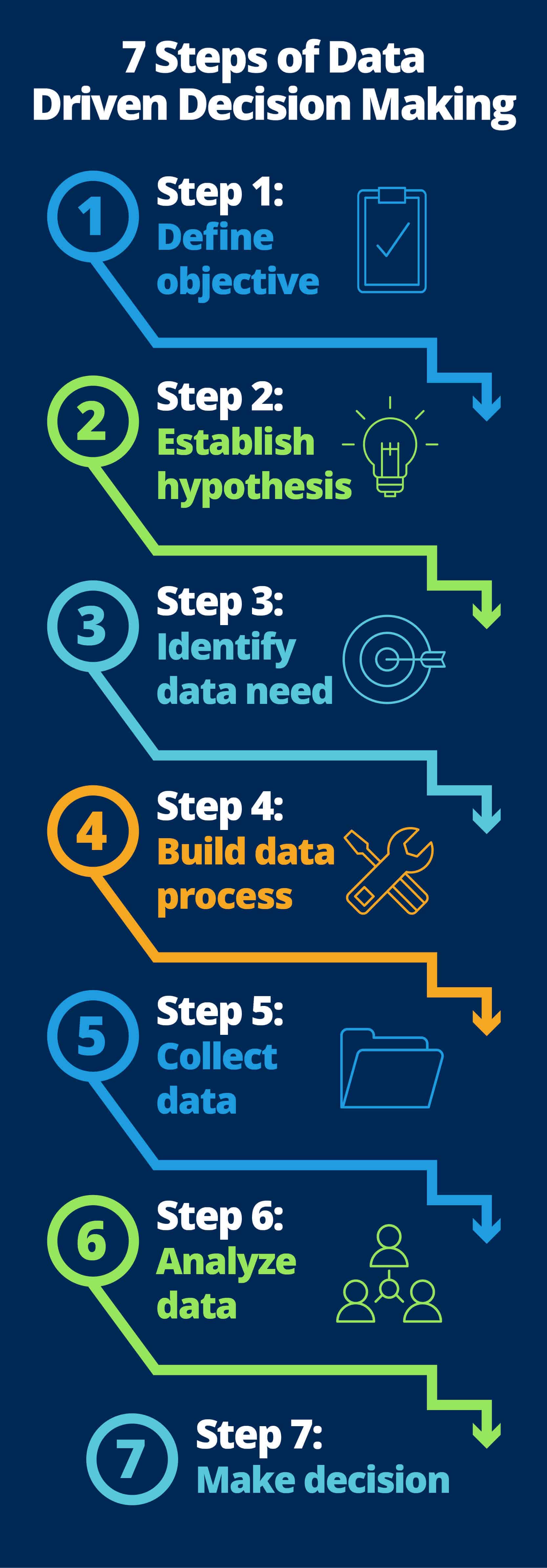The Entrepreneur’s Guide to Informed Decision Making
Effective decision making is the backbone of any successful business. Entrepreneurs who can make informed, timely, and strategic decisions are better equipped to drive growth, innovation, and profitability. Decision making for entrepreneurs is a critical skill that can make or break a business. In today’s fast-paced and competitive market, entrepreneurs need to be able to navigate complex challenges, weigh risks and opportunities, and make decisions that align with their business goals.
A well-crafted decision-making process can help entrepreneurs avoid costly mistakes, capitalize on new opportunities, and build a strong foundation for long-term success. However, decision making is not always easy, especially in the face of uncertainty, ambiguity, or conflicting priorities. That’s why it’s essential for entrepreneurs to develop a robust decision-making framework that takes into account their unique business needs, goals, and values.
This article will provide a comprehensive guide to decision making for entrepreneurs, covering the essential skills, strategies, and best practices for making informed decisions that drive business success. Whether you’re a seasoned entrepreneur or just starting out, this guide will help you develop the decision-making skills you need to navigate the challenges of business ownership and achieve your goals.
Understanding Your Decision-Making Style
Entrepreneurs make decisions in various ways, often influenced by their personality, experience, and values. Understanding your decision-making style is crucial to making informed decisions that drive business success. There are three primary decision-making styles: intuitive, analytical, and hybrid.
Intuitive decision makers rely on their instincts and experience to make quick decisions. This style is often effective in fast-paced environments where time is of the essence. However, it can lead to impulsive decisions that may not be thoroughly thought out. Analytical decision makers, on the other hand, rely on data and analysis to make informed decisions. This style is often effective in complex environments where multiple factors need to be considered. However, it can lead to analysis paralysis if not managed properly.
Hybrid decision makers combine the strengths of both intuitive and analytical styles. They use their instincts to identify potential solutions and then analyze the data to validate their decisions. This style is often effective in environments where both speed and accuracy are crucial. By understanding your decision-making style, you can identify areas for improvement and develop strategies to enhance your decision-making skills.
Decision making for entrepreneurs requires a deep understanding of their business, industry, and market. By recognizing your decision-making style and its strengths and weaknesses, you can make more informed decisions that drive business growth and success. Whether you’re an intuitive, analytical, or hybrid decision maker, the key is to be aware of your style and adapt it to the situation at hand.
How to Gather Relevant Data for Informed Decisions
Gathering relevant data is a crucial step in the decision-making process for entrepreneurs. It helps to inform decisions, reduce uncertainty, and increase the chances of success. There are several types of data that entrepreneurs can gather to support their decision making, including market research, customer feedback, and financial analysis.
Market research involves gathering data about the target market, including demographics, needs, and preferences. This data can be gathered through surveys, focus groups, and online analytics tools. Customer feedback is another important source of data, providing insights into customer satisfaction, preferences, and pain points. This data can be gathered through customer surveys, reviews, and social media listening.
Financial analysis involves gathering data about the company’s financial performance, including revenue, expenses, and cash flow. This data can be gathered through financial statements, accounting software, and financial modeling tools. By gathering and analyzing these different types of data, entrepreneurs can make more informed decisions that drive business growth and success.
Decision making for entrepreneurs requires a data-driven approach. By gathering and analyzing relevant data, entrepreneurs can reduce uncertainty, increase confidence, and make more informed decisions. Whether it’s market research, customer feedback, or financial analysis, the key is to gather data that is relevant, reliable, and actionable.
In addition to gathering data, entrepreneurs must also be able to analyze and interpret it effectively. This involves using tools and techniques such as data visualization, statistical analysis, and financial modeling to extract insights and meaning from the data. By combining data gathering and analysis with effective decision-making skills, entrepreneurs can make more informed decisions that drive business success.
Overcoming Common Decision-Making Biases
Decision making for entrepreneurs can be influenced by various biases that can lead to suboptimal decisions. Understanding these biases and learning how to overcome them is crucial for making informed decisions that drive business success. One common bias is confirmation bias, which involves seeking information that confirms pre-existing beliefs or assumptions. This can lead to a narrow focus on a single solution, ignoring alternative perspectives and potential risks.
Another common bias is anchoring bias, which involves relying too heavily on the first piece of information encountered when making a decision. This can lead to an overemphasis on initial data, even if it is incomplete or inaccurate. Availability heuristic is another bias that can affect decision making, where entrepreneurs overestimate the importance of information that is readily available, rather than seeking out a more diverse range of perspectives.
To overcome these biases, entrepreneurs can use several strategies. One approach is to seek out diverse perspectives and opinions, including those that may challenge pre-existing assumptions. This can involve consulting with experts, conducting market research, or seeking feedback from customers and stakeholders. Another approach is to use decision-making frameworks and tools, such as decision trees or cost-benefit analysis, to help structure the decision-making process and reduce the influence of biases.
Additionally, entrepreneurs can use techniques such as “red teaming” to simulate alternative perspectives and challenge their own assumptions. This involves assembling a team of individuals with diverse backgrounds and expertise to provide a contrarian view of the decision at hand. By using these strategies, entrepreneurs can reduce the influence of biases and make more informed decisions that drive business success.
The Role of Risk Management in Entrepreneurial Decision Making
Risk management is a critical component of decision making for entrepreneurs. It involves identifying potential risks, assessing their likelihood and impact, and developing strategies for mitigation. Effective risk management can help entrepreneurs avoid costly mistakes, minimize losses, and maximize opportunities for growth and success.
There are several types of risks that entrepreneurs may face, including market risks, financial risks, operational risks, and reputational risks. Market risks refer to the potential impact of changes in market conditions, such as shifts in demand or competition. Financial risks refer to the potential impact of financial losses or instability, such as cash flow problems or debt obligations. Operational risks refer to the potential impact of disruptions to business operations, such as supply chain disruptions or equipment failures. Reputational risks refer to the potential impact of damage to the company’s reputation, such as negative publicity or customer complaints.
To manage these risks, entrepreneurs can use a variety of strategies, including risk assessment, risk mitigation, and risk transfer. Risk assessment involves identifying potential risks and assessing their likelihood and impact. Risk mitigation involves taking steps to reduce the likelihood or impact of potential risks, such as implementing safety protocols or diversifying investments. Risk transfer involves transferring potential risks to another party, such as through insurance or outsourcing.
Decision making for entrepreneurs requires a thorough understanding of risk management principles and practices. By identifying potential risks and developing strategies for mitigation, entrepreneurs can make more informed decisions that minimize losses and maximize opportunities for growth and success. Effective risk management can help entrepreneurs build a strong foundation for their business, reduce uncertainty, and increase confidence in their decision-making abilities.
Effective Communication for Better Decision Making
Effective communication is a critical component of decision making for entrepreneurs. It involves clearly articulating the decision-making process, goals, and objectives to team members, stakeholders, and customers. Clear communication helps to ensure that everyone is aligned and informed, reducing the risk of misunderstandings and miscommunication.
There are several key elements of effective communication in decision making, including clarity, concision, and transparency. Clarity involves clearly articulating the decision-making process and goals, avoiding ambiguity and confusion. Concision involves communicating the essential information in a concise and efficient manner, avoiding unnecessary detail. Transparency involves providing open and honest communication, sharing relevant information and data to support the decision-making process.
Entrepreneurs can use a variety of communication channels to facilitate effective communication, including meetings, emails, and project management tools. Meetings provide a forum for face-to-face communication, allowing team members to ask questions and provide feedback. Emails provide a written record of communication, allowing team members to review and reference the information. Project management tools provide a centralized platform for communication, allowing team members to access and share information in real-time.
Decision making for entrepreneurs requires effective communication to ensure that everyone is aligned and informed. By clearly articulating the decision-making process, goals, and objectives, entrepreneurs can build trust and confidence with team members, stakeholders, and customers. Effective communication also helps to reduce the risk of misunderstandings and miscommunication, ensuring that everyone is working towards the same objectives.
Learning from Failure: How to Use Mistakes to Improve Decision Making
Failure is an inevitable part of the entrepreneurial journey. However, it can also be a valuable learning experience that can help improve decision making for entrepreneurs. By analyzing mistakes and failures, entrepreneurs can identify areas for improvement, develop new strategies, and make more informed decisions in the future.
Conducting a post-mortem analysis is a crucial step in learning from failure. This involves reviewing the decision-making process, identifying what went wrong, and determining what could have been done differently. By analyzing the root causes of failure, entrepreneurs can develop new strategies and approaches that can help prevent similar mistakes in the future.
Another key aspect of learning from failure is identifying areas for improvement. This involves reviewing the decision-making process and identifying areas where improvements can be made. By identifying these areas, entrepreneurs can develop new strategies and approaches that can help improve decision making and reduce the risk of failure.
Applying lessons learned to future decisions is also critical. By incorporating the lessons learned from past mistakes and failures, entrepreneurs can make more informed decisions that are less likely to result in failure. This involves reviewing past decisions, identifying what worked and what didn’t, and applying those lessons to future decisions.
Decision making for entrepreneurs requires a willingness to learn from failure and use those lessons to improve future decisions. By analyzing mistakes and failures, identifying areas for improvement, and applying lessons learned to future decisions, entrepreneurs can develop the skills and expertise needed to make informed decisions that drive business success.
Staying Adaptable: How to Adjust Your Decision-Making Approach as Your Business Evolves
As a business grows and evolves, its decision-making approach must also adapt to changing circumstances. Staying adaptable is crucial for entrepreneurs to make informed decisions that drive business success. This involves reassessing priorities, adjusting strategies, and maintaining a flexible mindset.
Reassessing priorities is essential to ensure that the business is focused on the most critical objectives. This involves reviewing the company’s mission, vision, and goals, and adjusting them as necessary to reflect changing market conditions, customer needs, and competitive landscapes. By reassessing priorities, entrepreneurs can ensure that their decision-making approach is aligned with the company’s overall objectives.
Adjusting strategies is also critical to staying adaptable. This involves reviewing the company’s current strategies and tactics, and adjusting them as necessary to reflect changing market conditions, customer needs, and competitive landscapes. By adjusting strategies, entrepreneurs can ensure that their decision-making approach is effective in achieving the company’s objectives.
Maintaining a flexible mindset is also essential to staying adaptable. This involves being open to new ideas, perspectives, and approaches, and being willing to pivot when circumstances change. By maintaining a flexible mindset, entrepreneurs can ensure that their decision-making approach is agile and responsive to changing circumstances.
Decision making for entrepreneurs requires a willingness to adapt and evolve as the business grows and changes. By reassessing priorities, adjusting strategies, and maintaining a flexible mindset, entrepreneurs can make informed decisions that drive business success and stay ahead of the competition.






